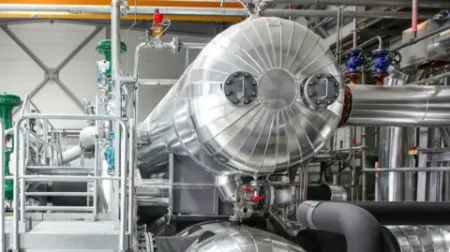In a landmark announcement, Netflix has revealed that it has utilized visual effects powered by generative artificial intelligence (AI) in one of its original television shows for the first time. The major streaming platform’s co-CEO, Ted Sarandos, disclosed the innovative use during an earnings call, emphasizing that AI was applied to create a dramatic scene involving the collapse of a building, featured in the Argentine science fiction series “The Eternauts.” This move marks a significant step in the integration of new technologies into the entertainment industry, prompting both excitement and concern.
Sarandos described the implementation of generative AI as an extraordinary chance for creators to enhance their productions not just by reducing costs but also by improving the overall quality of their films and series. However, the incorporation of such technology has ignited a fierce debate within the industry, as it raises apprehensions regarding the potential displacement of human workers. Many stakeholders express fears that AI could replace creative roles in filmmaking, a concern that has become increasingly prevalent as the tools for generative content creation continue to advance.
The announcement comes on the heels of Netflix reporting a substantial revenue figure of $11.08 billion for the second quarter of the fiscal year, signifying a 16% increase compared to the same period last year. The boost in earnings was attributed largely to the immense popularity of its content, notably the third and final season of the South Korean sensation “Squid Game,” which has amassed an impressive 122 million views to date. This success showcases Netflix’s ability to produce engaging content that resonates widely with audiences across various demographics.
As part of the conversation about the role of AI in production, Sarandos noted that this technology enables creators working on lower-budget projects to access sophisticated visual effects that would typically be unattainable. He cited that the generative AI utilized in “The Eternauts” allowed the production team to finish a specific sequence ten times faster compared to traditional special effects methods. This rapid execution ultimately made it financially feasible for a show operating on a smaller budget to incorporate such high-quality visuals.
Sarandos proudly proclaimed that the visual effects created by generative AI represent the very first instance of AI-generated final footage being showcased on screen in a Netflix original series or film. The creative team involved was reportedly thrilled with the outcome, validating the potential of this technology in enhancing storytelling through advanced visualizers. Nevertheless, such advances were not without repercussions; the Hollywood industry has voiced strong concerns regarding the ethical implications of AI, particularly during the recent strike by the Screen Actors Guild–American Federation of Television and Radio Artists in 2023. The union underscored the urgency for clearer regulations and guidelines on AI’s integration into the film and television sectors.
In summary, the introduction of AI-generated effects in “The Eternauts” signals not just an evolution in Netflix’s production capabilities but also a broader transition in the industry toward embracing new technologies. As Netflix navigates these uncharted waters, it must balance innovation with the pressing need to address the concerns of artists and creators whose livelihoods may be affected by these advancements. The excitement surrounding new possibilities in storytelling through AI is tempered by the realities of an industry in flux, where collaboration between human talent and artificial intelligence is still forging its way forward.











